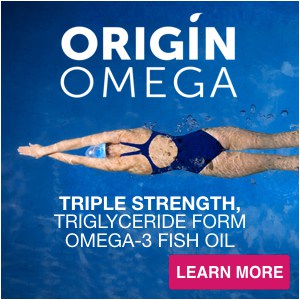Last week we introduced you to the first of our new liquid supplements, our vitamin D3 delivered in organic long chain fats. This week we want to introduce you to our second… our new liquid supplement vitamin K2 [MK7] also delivered in organic long chain fat.
Just like with vitamin D3 supplements, there are also a lot of K2 supplements on the market. So what’s wrong with just taking one of those? Well, again, just live vitamin D, there are a lot of people out there who have been taking the vitamin K2 supplements that their health care providers had recommended, coming back deficient in vitamin K2.
When we looked into why this was we found four common reasons they were not reaching micronutrient sufficiency for vitamin K2:
- The vitamin K they were taking was vitamin K2.
- The vitamin K2 they were taking was NOT delivered with a long chain fat.
- The vitamin K2 they were taking was K2 [MK4] not K2 [MK7].
- The vitamin K2 [MK7] they were taking was in a formulation that also contained alkaline minerals such as calcium or magnesium.
Some people had one of these issues and some had more than one. In this blog, we will take an in-depth look at vitamin K2, as well as these four issues and discover why each can block your ability to absorb your vitamin K2.
The Discovery of vitamin K
In 1929 Henrik Dam, a Danish scientist, observed that chickens fed a cholesterol-depleted diet developed hemorrhages and started bleeding. When, stunningly, these conditions could not be reversed with the addition of pure cholesterol in the chickens’ diet, it was surmised that an additional factor must have been extracted with the cholesterol in the first place. The Danish scientist named this newly discovered anti-hemorrhagic factor “Koagulationsvitamin,” which was later renamed vitamin K.
While most of us are familiar with vitamin K’s role in clotting blood and preventing uncontrolled bleeding, there is more to the vitamin K story. We now know that there are two forms of vitamin K, vitamin K1 and vitamin K2, and scientists are becoming more in awe of vitamin K2 for its role in preventing heart disease and osteoporosis! As nutrition experts who specialize in bone health, we constantly hear the media extoll the importance of vitamin D and calcium for strong bones, but often overlook the role of its fat-soluble partners in bone-building: vitamin A, vitamin E, and vitamin K. If you or someone you know is suffering from bone loss, s/he will not be able to successfully build, and maintain bone density without being sufficient in their essential micronutrients! That’s why in our new book, Rebuild Your Bones: The 12-Week Osteoporosis Protocol, we explain the role (and how to get) of each essential micronutrient that science has established is critical for your bone heath so you can better understand what to do, and why to do it, to prevent, stop or reverse osteoporosis! However, for this article, let’s laser in on the fat-soluble micronutrient – vitamin K, learn more about the two forms of this vitamin, how you can improve your levels, and what quantities are not only safe, but effective at improving bone density.
What is Vitamin K?
Vitamin K is also known as the molecular family of quinones and includes vitamin K1 (phylloquinone) from plants, K2 (menaquinone) made by bacteria, and there is even a synthetic K3 (menadione) which is not found in nature. Vitamin K1 and K2 are fat-soluble vitamins and cofactors for a group of gamma-carboxylase enzymes. Activated by vitamin K, these enzymes modify proteins by adding a carboxyl group to them to prepare them for action. These proteins that depend on vitamin K for activation are called GLa proteins.
Vitamin K1, aka phylloquinone. (and phytomenadione or phytonadione) is the vitamin K of plants and cyanobacteria. About 90% of most human dietary intake of vitamin K is in this K1 form. K1 helps add a carboxyl group to glutamate residues found in GLa protein clotting factors II (prothrombin), VII (proconvertin), IX, and X, [1] which are part of the cascade of reactions that
help blood clot. This is the reason why patients taking warfarin, the blood thinner that antagonizes vitamin K must take in relatively consistent amounts of vitamin K from day to day to avoid problems.
Vitamin K2, aka menaquinone, is the vitamin K of (intestinal) bacteria. Because ruminating animals use bacteria for the bulk of their green-plant-digestion, their guts are factories for vitamin K2. So is yours, to an extent – your good gut bacteria can convert vitamin K1 to K2, although the debate rages as to whether modern humans can convert an adequate amount of K1 to K2 to support basic functions. However, new research does not support these levels being adequate for heart or bone health- so we will continue to monitor and report new findings as we have them. This is important because K2 helps activate two major proteins that support calcium balance in your body- osteocalcin and matrix GLa protein.
Klear Arteries, Klotting on Kue, and a Strong Skeleton
Vitamin K really is an unsung hero. Here are some of its functions:
- Blood Clotting (“Koagulation”). The primary role of vitamin K1 is to activate clotting factors such as prothrombin. It is referred to as an anti-hemorrhagic.
- Bone Building, Breaking, and Re-making. Sufficient vitamin K2 is required to grow bones successfully as we mature, but it also has a role to play in maintaining bone density as an adult! In our successful efforts to reverse Mira’s osteoporosis, we looked in depth at every micronutrient that she needed beneficial amounts of. We found that K2 is absolutely essential in order to carboxylate a protein called osteocalcin, which once carboxylated removes calcium from our arteries where it can form dangerous plaque, and deliver it to our bone where it is needed to maintain our healthy bone density. The role vitamin D plays in bone building (making calcium available) is balanced by both vitamin A (that helps control the rate at which bone cells are made and broken down) and vitamin K2 (which helps deliver calcium into the bones by carboxylating osteocalcin). Because high calcium running around outside of your bones is dangerous (can make your heart race or become calcified in atherosclerotic plaques), it is best to get adequate vitamin K2 when supplementing with vitamin D – otherwise, you risk low bone density at best and a stroke or heart attack at worst. (Warning: while K2 and vitamin D are both synergists within the body do NOT take them at the same time as the comptete for absorption) Vitamin K2 has been proven in studies to be as effective as prescription drugs in reducing the incidence of bone fractures. In Japan, vitamin K2 is the recommended standard of care for osteoporosis, which is telling as this population can k-learly see the bone-health-divide between consumers of natto (a food very rich in K2 [MK7]) in certain areas in Japan versus non-natto-consumers. Currently neither the United States nor Canada recommends the use of K2 for treating osteoporosis. However, if you are suffering from low bone density or are interested in preventing osteopenia or osteoporosis, look for a high quality daily multivitamin – like nutreince – that meets your needs and supplies beneficial quantites of both vitamin K1 and K2. And if you are taking extra calcium to increase your bone density, you may also want to add in extra vitamin K2 in the MK-7 form to ensure calcium transport – using a liquid, long chain fat based delivery system like our liquid K2[MK7] supplement is a good choice.
- Prevents Atherosclerosis (hardening of the arteries). Matrix GLa protein (MGP) is found in arterial walls, and just like osteocalcin, it requires vitamin K2 to activate or carboxylate it, allowing your body to mobilize calcium in arterial deposits and remove it from the scene of the inflammation. Activated MGP directly blocks the formation of calcium crystals inside blood vessels and arteries. In fact, MGP is the most powerful natrual occurring inhibitor of calcification in the human body, but, we repeat, in order to work it MUST be carboxylated by vitamin K2! Notice how clearly the calcium link is between bone and heart health when you think about the role of vitamin K2! [2] Only focusing on inflammation, protein intake, blood sugar, or other imbalances related to poor bone health isn’t enough. Our internal systems are interconnected and micronutrient deficiency connects them directly.
- Protection from Oxidative Stress. Vitamin K helps protect cells- particularly nerve cells- from damage. Moreover, vitamin K2 has been shown to turn off certain cancer genes. Both roles reduce cancer risk.
- Metabolic Health and Exercise Performance. Some research suggests that vitamin K2 improves energy utilization during exercise, [3] insulin production, and insulin sensitivity. All promote a healthy blood sugar and weight.
- Sexual Healing. Vitamin K1 has been shown to boost testosterone levels in male rats with vitamin K deficiency by healing lipopolysaccharide-induced damage that reduces testosterone synthesis, [4] and has been shown to boost male rat testosterone production directly. [5] More research in humans is needed to support this finding. In females, there is also evidence that vitamin K2 boosts fertility and helps resolve polycystic ovarian syndrome, but only in those with pre-existing vitamin D deficiency, so more research is needed to support this finding as well. [6]
- Cardiovascular Health. Vitamin K1 clots your blood while vitamin K2 keeps your arteries clear of calcified blockages. As you may note, these roles balance.
Vitamin K1 and K2 Deficiencies Increases Disease Risk
Vitamin K2 is far newer to nutritional researchers than K1, and thus it is a bit too early to make bold claims about vitamin K2 deficiency. Still, there are some obvious drawbacks to insufficient vitamin K2 levels, and there are well documented signs of vitamin K1 deficiency.
- Osteoporosis – Particularly in developing children, vitamin K2 deficiency makes it hard to deliver calcium into bone. Anecdotal research indicates that teeth grow in straighter and stronger with adequate vitamin K2- a great alternative to braces! According to a 2012 study out of Harokopio University of Athens in Greece, participants using vitamin K2, calcium, and vitamin D supplementation showed significantly lower markers for bone loss and significant increases in total- body BMD.
- Heavy Bleeding. Severe vitamin K1 deficiency can lead to hemorrhage, whether it is an uncontrollable nose bleed, gum bleed, or an abnormally heavy menstrual flow. Those with liver disease cannot appropriately use vitamin K1 to activate clotting factors and often are given supplemental vitamin K to avoid uncontrolled bleeding.
- Cardiovascular Disease from Atherosclerosis (Hardened Arteries). As noted above, vitamin K2 mobilizes calcium that would otherwise stick in arterial plaques. For example, researchers at Erasmus University Medical Center in Rotterdam, Netherlands, studied 4,807 men and women for over seven years and determined that supplementation with vitamin K2 improved cardiovascular health by reducing arterial calcium accumulation by 50 percent and slashed the risk of a cardiovascular event by 50 percent!
Who is likely to be vitamin K deficient? [7]
- Premature Infants
- Infants and Young Children in Developing Countries
- Pregnant and Lactating Women in Developing Countries
- People with Cystic Fibrosis / Pancreatic insufficiency / Low Lipase Production
- Vegans, and to a lesser extent Vegetarians (vitamin K2)
- Low fat Dieters
- People with Poor Gallbladder Function / Gallbladder Removal
- People with Liver Disease
- People with poor probiotic status
- People with Chron’s disease and/or Celiac disease
Vitamin K – The Right Way
So what’s a nutrition-minded k-onsumer to do? Read on to learn about how to improve your vitamin K1 and K2 status from food, lifestyle adjustments, and supplementation.
STEP ONE – FOOD: Choose whole food sources of vitamin K1 from plants and vitamin K2 from animal and fermented foods.
- Choose (mostly green) vegetables to boost your vitamin K1. Dark, leafy green vegetables (such as most salad greens, spinach, kale), green vegetables (such as broccoli, asparagus, brussel sprouts, green peas), tomatoes, and cauliflower deliver high amounts of vitamin K1. Furthermore, foods increase vitamin K concentration with less water (so tomato paste is higher than tomatoes) and the outer leaves of green leafy vegetables are more nutrient-rich in vitamin K than the inner leaves. When fruits or vegetables are commercially processed into juice, vitamin K is depleted.
- Choose pasture-raised animal products and certain fermented foods to boost your vitamin K2. Vitamin K2 that you can buy as a supplement comes in two forms- MK-4, which has a shorter half-life, and MK-7, which has a longer half life. This is where many people make mistakes with their supplements. Research shows that MK-4 is only effective at very high dosages (1500 – 45,000 mcg for MK-4 compared to 45 to 240 mcg for MK-7.) Also MK-4 only stays active in the body for about 6-8 hours, meaning you have to take beneficial quantities of MK-4 three times every day to prime your body for heart health and bones strengh. In contrast, research shows that MK-7, even in low doses (45 – 90 mcg) once a day, significantly incease serum levels and is effective for carboxylation of osteocalcin.
To get MK-4 (and appreciable amounts of MK9, MK10, and MK11) from food, focus on animal products. Choose lard and dairy from 100% grass-fed cows, such as milk, butter or ghee, cream, and cheeses, to ensure you are getting meaningful amounts of vitamin K2. Cows fed grain cannot produce K2 in the same amounts because they are consuming grain feed rather than vitamin K1-rich grasses. Most soft, fermented cheeses have appreciable amounts of vitamin K2. Gouda cheese is the highest with 75 mcg per 3.5 oz serving. Brie, blue cheese, jarlsberg, and edam also contain beneficial amounts of K2, while hard cheeses such as parmesan, colby, swiss, and cheddar have less. Fresh cheeses and yogurt are lower in K2. [8] In addition, grass-fed meats such as meat and liver from beef and bison, egg yolks from pasture-raised chickens, and goose liver serve up vitamin K2. Bacteria in your digestive tract can also manufacture MK-4 [9] from K1 in the plants you consume, but it is harder to digest and absorb than we initially thought- best to consume preformed K2 to be on the safe side. Fermented foods, including the hard and soft cheeses mentioned above, also supply appreciable amounts of vitamin K2 as MK-7. Natto, a traditional Japanese food, is the winner, serving up over 1000 micrograms of K2 as MK-7 for a 3.5 oz serving, but tastes horrible. Sauerkraut and other fermented vegetables are delicious sources of MK-7. - Choose high quality proteins that deliver high quality fats. We cannot understate the importance of grass-fed sources for your K2 containing meats, lard, and dairy. Without vitamin K1-rich grass as the initial foodstuff for the ruminant whole meat or milk, all K2 bets are off.
- Avoid Antinutrients. Foods containing trypsin inhibitors, a plant’s natural insect repellent, can wreak havoc on your digestion because trypsin is an important digestive enzyme. Trypsin inhibitors can prevent you from absorbing not only fat soluble vitamins (A, D, E, and K), but also vitamin B12 and amino acids. Excessive trypsin inhibitors can even damage your pancreas. Be wary of consuming excessive quantities in beans, grains, nuts, seeds, and nightshade vegetables (such as potatoes, peppers, tomatoes, goji berries, and eggplant). Sprouting, soaking or fermenting your grains, nuts, seeds and vegetables can reduce this effect. [10]
- Make Room for Microbes. Fermented foods such as natto and sauerkraut may be a great source of preformed vitamin K2, but all fermented foods have the added beneficial potential to help seed your gut with beneficial bacteria than can convert K1 to K2.
STEP TWO – LIFESTYLE: Consider your digestive health, medications, and overall health to support your vitamin K status.
- Living a vegan or vegetarian lifestyle can easily increase the risk of vitamin K2 deficiency. Even if you consume a lot of dark leafy green vegetables, you cannot assume your gut bacteria will make enough vitamin K2 for you and that you will absorb it from your lower gut. This is why we recommend that vegans and most vegetarians supplement at least 80 micrograms per day of vitamin K2 because vitamin K1 by itself has not been shown to be sufficient to reduce heart disease or osteoporosis risk. A study published in the Journal of Nutrition found that taking vitamin K2 reduced heart disease risk while intake of K1 did not show a beneficial effect. [11] Researchers in the Netherlands report that vitamin K2 is three times as capable as vitamin K1 at carboxylating osteocalcin, the protein that helps put calcium into bones. [12] Furthermore, research is not conclusive as to whether the quantity would be enough to prevent or reverse osteoporosis, or how the high lectin and trypsin inhibitor content of the vegan diet (which can cause leaky gut and diminish K2) affects production.
- Mind your Medications.
- Because vitamin K makes blood clot, it is important for those on blood thinners (such as Warfarin) to be consistent with their vitamin K intake from both food and supplements. Despite the common medical advice to avoid green vegetables when taking a blood thinner, it is not generally considered unsafe to get vitamin K from food or supplements as long as you are getting the same amount each day. That way your dose of blood thinner can be adjusted to your daily intake of vitamin K and you don’t have to miss out on all the benefits of vitamin K that can make or break your bones!
- The use of antibiotics for longer than 10 days has been documented to stifle vitamin K2 production in the gut from your good gut bacteria. This is not unique to vitamin K– antibiotics can stifle the production of butyrate and B vitamins as well. [13]
- Furthermore, it is somewhat ironic that cholesterol-lowering statin drugs, bile acid sequestrants (e.g. cholestyramine, colesevelam), lipase inhibitors (such as Xenical or Orlistat), and certain osteoporosis drugs (yes, really) inhibit the conversion of vitamin K1 to K2. [14] This means that it is up to you if you take these drugs to learn everything you can about being able to achieve micronutrient sufficiency while still taking these medicaitons. In Rebuild Your Bones we help you balance your medications with the proper food, lifestyle choices, and supplementation to help you succeed on your journey to extraordinary health.
- Munch Mindfully. Giving your body time to eat makes a huge difference in the production of digestive juices (acid, enzymes, and bile) that can do the hard work of digesting food and helping you to absorb this fat-soluble vitamin and others. Take your time.
STEP THREE – SUPPLEMENTATION:
- Mix and Match. If you choose to supplement, get a blend of K1 with both the short and long forms of K2 (MK-4 and MK-7) as an insurance policy. MK-4 is taken up more rapidly in your body after you k-onsume it and may be less effective than MK-7 at reaching liver and bone, but more effective at reaching other tissues like sex organs. Meanwhile, vitamin K2 as MK-7 has a longer half life so it does not need to be taken multiple times per day and may be more effective at reaching liver and bone. However, the form of your K2 MK-7 is very important if you want to ensure potency. Most products contain unprotected MK-7, which is susceptible to degradation in formulations containing minerals, such as calcium, magnesium, and multivitamin formulations. A specially patented form of MK-7 called K2VITAL Delta protects the K2 from losing its potency. As common sense dictates, we recommend you choose a multivitamin that delivers both benefiicial vitamin K2 forms in quantities large enough to do the necessary maintenance. In fact, MK-7’s longer half life in the liver makes it even more effective than vitamin K1 at supporting blood clotting. Moreover, the MK-7 K2VITAL Delta form we use in Nutreince has been shown to be the most effective– more on this in Rebuild Your Bones!
- The RDI for vitamin K regardless of form is 120 mcg per day and at the time of this post no toxicity level has been set. To ensure you have your bone and blood bases covered, our Nutreince multivitamin delivers all three forms of non-GMO vitamin K: 40 micrograms of vitamin K1, 40 micrograms of MK-4 and 40 micrograms of MK-7 in the superior K2VITAL Delta form so you get get calcium out of your arteries and into your bones.
- Bone up on K2, if needed. If you are trying to increase your bone density and especially if you are taking extra calcium, we suggest adding a liquid vitamin K2 MK-7 supplement at around 120-240 mcg daily (beyond the levels in your current multivitamin). If your K2 supplement delivers MK-4 rather than MK-7, you will have to take larger quantities (500 – 15,000 mcg, 3 times per day) because it breaks down sooner in your body. [15] As noted above, we have you covered at Calton Nutrition with the addition to our multivitamin of K2VITAL Delta , the most shelf stable and effective form of K2 on the market anywhere in the world today, as well as our brand new liquid Vitamin K2 [MK7] supplement delivered in organic long chain fats for superior absorption.
- Supplement Vitamins D and K separately. This is important, because vitamins K and D compete with one another for absorption. [16] An optimal multivitamin or vitamin K supplement, for instance, will not contain both vitamins D and K in the same dose. That’s why we separate them into AM and a PM doses in our Nutreince multivitamin and why we have created separate liquid Vitamin D3 and Vitamin K2[MK7] supplements so you can take them separately throughout the day.
- Power up with Probiotics. Your good gut bacteria do a great job of manufacturing vitamin K2 as MK-4 when you consume vitamin K1-rich vegetables, but science hasn’t shown that they produce beneficial quantities. To be better safe rather than sorry, we recommend you cover your K2 bases. While we wish the human body converted more MK-4 from K1 than it does, we do not recommend- for several health reasons- that you neglect your good gut generators of several vitamins and beneficial compounds.
Keep Your Bones Strong!
In conclusion, many of us are simultaneously concerned about heart and bone health- but that’s not all that vitamin K2 does for us. While a lot is known about the health benefits and functions of vitamin K1, we continue to learn more about the wonders of K2. We will keep the research-based recommendations coming. Moreover, the role of good gut bacteria in grazing animals boosts K2 levels, so the value of pasture-raised eggs, grass-fed meats, organic cheeses, and several high quality fermented foods that support health in a myriad of ways cannot be understated. Vitamin K2 really is the “X factor” that Dr. Weston A. Price said was present in many healthy cultural diets around the world-cultures with straight teeth, strong bones, and good longevity. We have come a long way in micronutrient research since then, and encourage you to take advantage! Check out our new book, Rebuild Your Bones, to learn the 40, clinically-proven, healing habits that you can use to start rebuilding your bones – today!
[1] https://www.ncbi.nlm.nih.gov/pmc/articles/PMC5494092/
2 https://www.mdpi.com/1422-0067/20/3/628/htm
3 https://www.ncbi.nlm.nih.gov/pubmed/28646812
4 https://www.ncbi.nlm.nih.gov/pubmed/21894328
5 https://www.ncbi.nlm.nih.gov/pubmed/21914161
6 https://www.ncbi.nlm.nih.gov/pubmed/28407660
7 https://ods.od.nih.gov/factsheets/VitaminA-HealthProfessional/#h5
8 https://academic.oup.com/cdn/article/1/6/e000638/4558638
9 https://www.ncbi.nlm.nih.gov/pmc/articles/PMC5494092/
11 https://www.ncbi.nlm.nih.gov/pubmed/15514282
12 https://www.ncbi.nlm.nih.gov/pubmed/17158229
13 https://www.ncbi.nlm.nih.gov/pmc/articles/PMC5494092/
14 https://www.ncbi.nlm.nih.gov/pmc/articles/PMC5494092/
15 https://www.ncbi.nlm.nih.gov/pubmed/16801507
16 https://www.ncbi.nlm.nih.gov/pubmed/25442537












